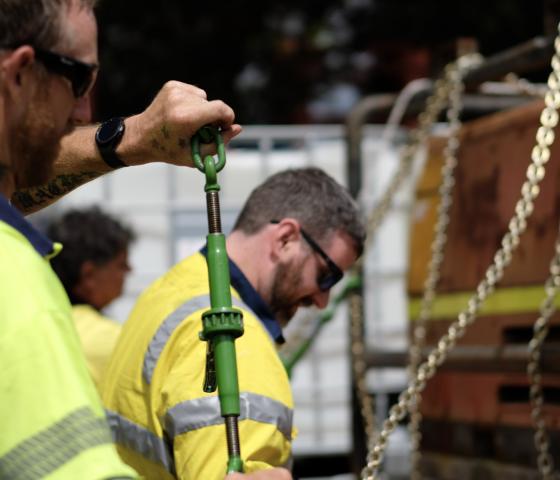Manual Handling Skill Set
Asses, plan and carry out plans to assess and control hazards
The workshop provides participants with the knowledge and skills to effectively identify hazards and assess and control risks arising from manual tasks.

Overview
Campus Albany | Katanning
When All year round
Study Mode On Campus
The workshop provides participants with the knowledge and skills to effectively identify hazards, and assess and control risks arising from manual tasks. Recognising that the participants’ roles may only be to contribute to this process, the workshop also discusses the employer’s obligations towards involving workers in this process.
This workshop forms part of the requirements for manual tasks training as outlined in the Commission for Occupational Safety and Health Code of practice: Manual tasks (2010) It is not designed to replace practical or task specific training, but instead should be provided together with practical training.
The Code explains that after training, participants should be able to recognise manual handling risks in tasks, and in consultation, decide the best way to minimise them.
During this course you will learn and understand how to:
- Assess - the risks associated with relocating a load
- Plan - the relocation process
- Carry Out - the relocation in accordance with the planned relocation process
- You want to learn manual handling techniques to avoid injuries for yourself and members of your team.
Then this is the course for you.
To make an informed choice about the suitability of this course, please consider the essential skills and knowledge below. You must:
- Have a basic understanding of body mechanics to prevent injury.
- Demonstrate a basic level of fitness to carry and move loads.
- Have problem-solving and attention to detail skills.
- Show well-developed communication.
This course is designed to give you the skills and knowledge to effectively identify hazards and assess and control risks arising from manual tasks.
Time Commitment
You will need to allocate sufficient time to complete this course. This includes attending classes on-campus and/or online as outlined in the study mode. You will also need to undertake independent study outside of class hours, including private study, skills practise and completing assessment requirements.
Below are some of the important personal skills you will be required to develop and demonstrate during training. These skills are highly valued by industry:
- Respectful Communication: Interact with people from different backgrounds, share ideas and build trust.
- Teamwork: Collaborate with others respectfully and be open to feedback.
- Problem Solving: Look for solutions and clarity when solving problems: ask questions, consider alternatives and respond to challenges.
- Initiative: Be proactive and motivated and seek help when necessary.
- Planning: Manage time well, prioritise and complete tasks efficiently.
- Self-Management: Reflect on your performance to grow and succeed in your studies. Taking responsibility for successes and failures is helps us to be resilient and confident.
- Learning: Recognise and build on your strengths to embrace the knowledge and experience offered in your study program, including:
- Assess the risks associated with relocating a load.
- Plan the relocation process.
- Carry out the relocation in accordance with the planned relocation process.
- Employer obligations towards involving workers in the safe manual handling process.
- Technology: Adapt to new tools, access digital resources, and integrate technology into your learning.
Important information
Select your preferred campus and apply
All year round, 2025
Details
Units
Core
| National ID | Unit title |
|---|---|
| TLID0020 | Shift materials safely using manual handling methods |
Details
Units
Core
| National ID | Unit title |
|---|---|
| TLID0020 | Shift materials safely using manual handling methods |